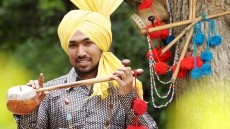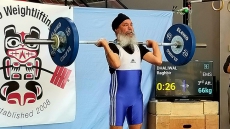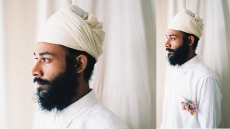“It’s hard to get locked into one culture when you have lived across many.”
An accomplished investigative journalist, Ravi Somaiya has covered several of the stories that have marked the first few years of the new millennia for the most prestigious media outlets (NY Times, The Guardian, Rolling Stone): Radical Islamic terrorism, disinformation campaigns, mass shootings, you name it.
Alas, it was a historic event—the death of the second Secretary-General of the United Nations almost sixty years ago—the one that inspired Somaiya’s first book, “The Golden Thread”: Dag Hammarskjöld’s plane went down in Rhodesia (now Zambia) under suspicious circumstances. His push to help the Congo remain independent of Soviet and American influences during the Cold War rubbed numerous parties the wrong way.
“The complexity of this story is insane,” explains Somaiya. “There are so many languages, characters, disputed incidents, documents… Some days I wondered what did I get myself into. Halfway through, I thought maybe it was an accident. That was the lowest point. After that, it became exciting and engaging and it stared making sense.”
In the book, the author makes sense of a complicated net of political rivals and intelligence services at cross-purposes to discover most of them would benefit of Hammarskjöld’s death. Even though the writer hints at considerable challenges during research, he resists becoming the story: “I had so many rich, interesting characters, I felt it wasn’t really about me. You don’t want a plumber to tell you how hard was it to fix your toilet and you don’t want a writer to tell you how hard it was to write the book.” Ravi Somaiya dedicates “The Golden Thread” to his parents: “I grew up in a house full of books. I had a father who instilled the love of reading in me and taught me to root for the underdog. He died just before I started writing this book. My father was a very idealistic man and so was Hammarskjöld. I’m sure I was drawn to him for that reason.”
While Ravi was born in England, Somaiya’s grandparents were Indians who migrated to Uganda: “There was a lot of migration from India to Africa to build railroads and my grandparents were merchants. These people were like time travelers to me: My grandmother got married at 12 and her way of looking at the world was profoundly different to my friends at school. It was a lesson in understanding we’re all different and that doesn’t make us better or worse.” Ravi’s parents left Uganda following the ethnic genocide under Idi Amin and landed in Britain.
Somaiya counts as his mentors the two-time Pulitzer Prize winner John Fisher Burns and NY Times mainstay David Carr: “They taught me not to see people as heroes or villains. I see a tradition going through them. American journalism is now in a difficult spot, but has a wonderful history and ethos back to John Hersey reporting from Hiroshima and all the deep, thoughtful narrative non-fiction of the likes of Tom Wolfe and Rachel Carlson. It one of the most beautiful things that America has ever produced.”

Q & A with Ravi Somaiya
Considering the complexity of the subject, “The Golden Thread” reads very fluidly.
Good writing is just clear thinking. My fear is that someone would be bored or confused when reading something I’ve written. I get to write clear sentences and paragraphs in journalism, but when it comes to write a plot, that’s a different skillset. For that, I watched a lot of movies and read a lot of thriller novels.
Did you ever feel at risk while researching the book?
If you’re sensible and thoughtful and take the right precautions, you’ll be ok. But I come from a tradition of foreign correspondents so my standards of danger are a bit different.
How is “The Golden Thread” relevant today?
It became more relevant as I wrote. The background of the book is the end of colonialism in Africa in the late 50’s and early 60’s: You have native black populations rising up after decades of injustices and white Europeans feeling scared and threatened. You can see the resonance. In 1961 there were a lot of conspiracy theories, cynicism, and people doing what was easy and best for them. There’s a lot of that in the air currently.
How do you think your background has shaped the way you perceive global events?
Before I started writing this book, I would have said it makes no difference. Now I think it gives me an international perspective: It’s hard to get locked into one culture when you have lived across many. For three generations my family hasn’t ended where it started. I grew up as the one brown face in a school in Britain. I love to see people as people, because underneath all the noise we all want the same thing: We want to be loved, we want to safe and have something to hope for.
Photos Courtesy of Ravi Somaiya







